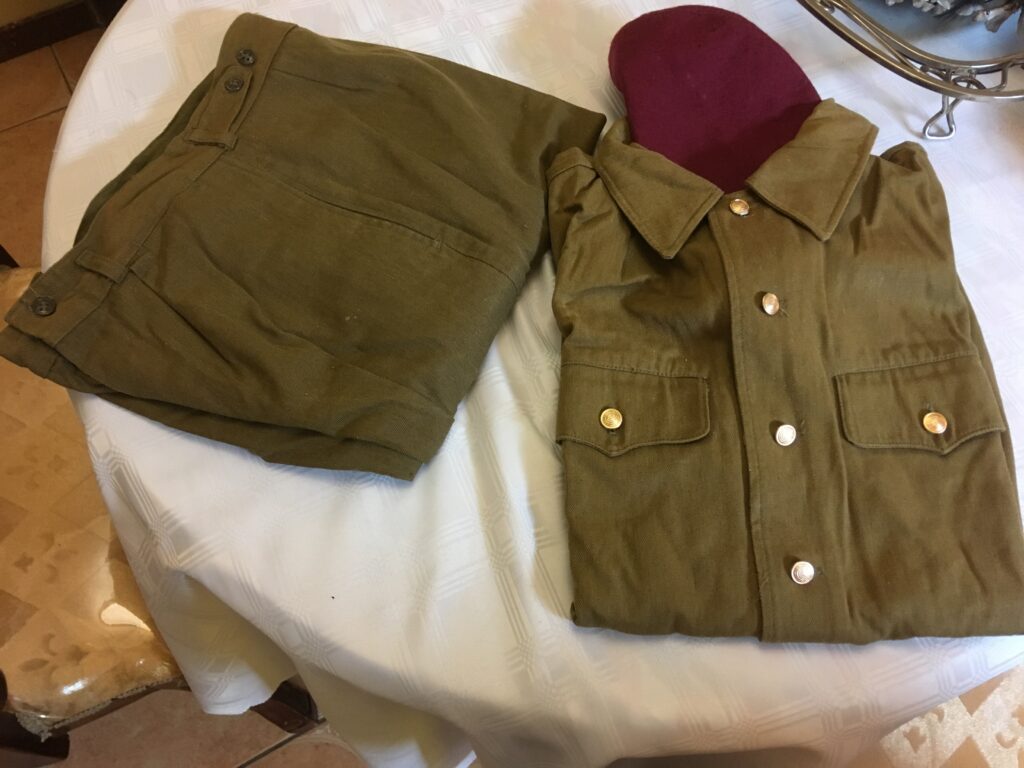Khulu Radebe goes to Angola, joins fight against UNITA rebels

INTRODUCTION
Khulu Radebe’s journey to Angola was far from direct. He traveled with other youth through several countries to get there. At one stop an older ANC member warned the youths not to join, but, filled with revolutionary zeal they didn’t heed his counsel. Radebe soon realized the accuracy of the older man’s instruction. Fighting against the UNITA rebels for nine months provided many perilous moments as the wily, U.S.-backed opponents killed close to two dozen MK soldiers after successfully ambushing them.
Commissar Walter threw me an AK-47, a pair of boots and other combat gear. The next morning they put me on a convoy going to the Northern Front to fight against UNITA rebels. We were headed to Paredes, Bengo Province, in the northern part of Angola, where the ANC’s military headquarters were located. I could clearly see that these guys still wanted to get rid of me. They allocated me to the first truck of the convoy. If we were ambushed, something which was a near certainty, I was likely to be killed.
When the expected ambush happened, the UNITA rebels unexpectedly shot at the second and third trucks, and I was saved. Still, it was a baptism of fire in the place where I was going to spend the next nine months.
I later concluded that our mistake as MK was to travel all the way from Luanda to the northern part of Angola. Not far from Luanda was the town of Caxito, where we had found a group of civilians in trucks who were afraid to travel on their own because of UNITA. As they had done at other times with other MK convoys, they asked us to cover them so that they could safely reach Quibaxe, a town to the north of Caxito.
We were on the road, with mountains on either side, when the enemy attacked us using what we in the military called a ‘balalaika ambush’. This was a double-sided attack, meaning that they opened fire from left and right simultaneously, with bazooka (RPG-7) rocket launchers and AK-47s. It didn’t matter which side of the road you tried to drive on, because they had enough men to attack from both sides.
UNITA was a serious opponent that organised its first, second and third echelons to shoot in sequence. The first unit would come up and go full-fire and cease abruptly, at which point the guys in the second unit would stand and blast away. When they had unloaded all their ammo and stepped down, the third unit would pop up and start blasting. In the meantime, Unit 1 would be reloading, followed by Unit 2, and so on.
We heard many unsettling sounds on that battlefield. AK-47s, the weapon of choice for both sides, clattered repeatedly. The RGP-7s that UNITA used issued a long scratchy whoosh. The stutter of a Bren light machine gun, originally a Czech gun that had been modified by Britain, occasionally filled the air. UNITA was also known for producing volley fire effects meant to upset your fighting focus. Nothing during our training had prepared the other soldiers on their first mission or me for that auditory onslaught.
Even though MK was glad to help civilians along that long road north, it was a serious tactical mistake. On that terrible day, we were in a line of between five and ten trucks, with eight to ten men on each military truck. We were sheltering the civilian trucks, at front and back, among our own trucks. This resulted in even more limited manoeuvrability for our own vehicles and many MK soldiers being killed by UNITA rebels.
The UNITA forces’ trickery also led to our losses. As we were doing our best to respond during the attack, we thought we heard the voices of women hiding in the bush and calling out ‘Ajuda’ (meaning ‘I need help’ in Portuguese). But when we went there, thinking that we were going to the aid of civilians, we came under attack from yet more UNITA soldiers.
Those two factors explain, in part, why we lost so many comrades in that battle – and at other times. After the UNITA rebels left, we discovered that we had lost 21 men. There were also many seriously wounded men among the survivors.
Getting our wounded and the rest of us back into the trucks and moving on demanded enormous effort. We had jumped from the trucks to retaliate because we subscribed to the spirit of no surrender. We had survived that attack, but had paid a heavy price.
I was severely demoralised. You’re told they’re going to kill you in spite of your innocence, you escape, and then are sent to the battlefield to die. It was very bad.
I came to reflect that somehow I’d survived even though we hadn’t had a chance. There had to be a God.
Excerpt from Comrade King by Khulu Radebe and Jeff Kelly Lowenstein, all rights reserved. Comrade King is published by Jacana Media. The e-book can be purchased by going to: Amazon.
